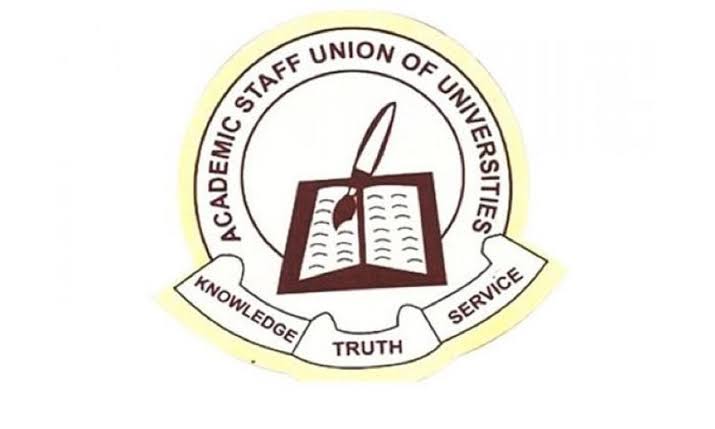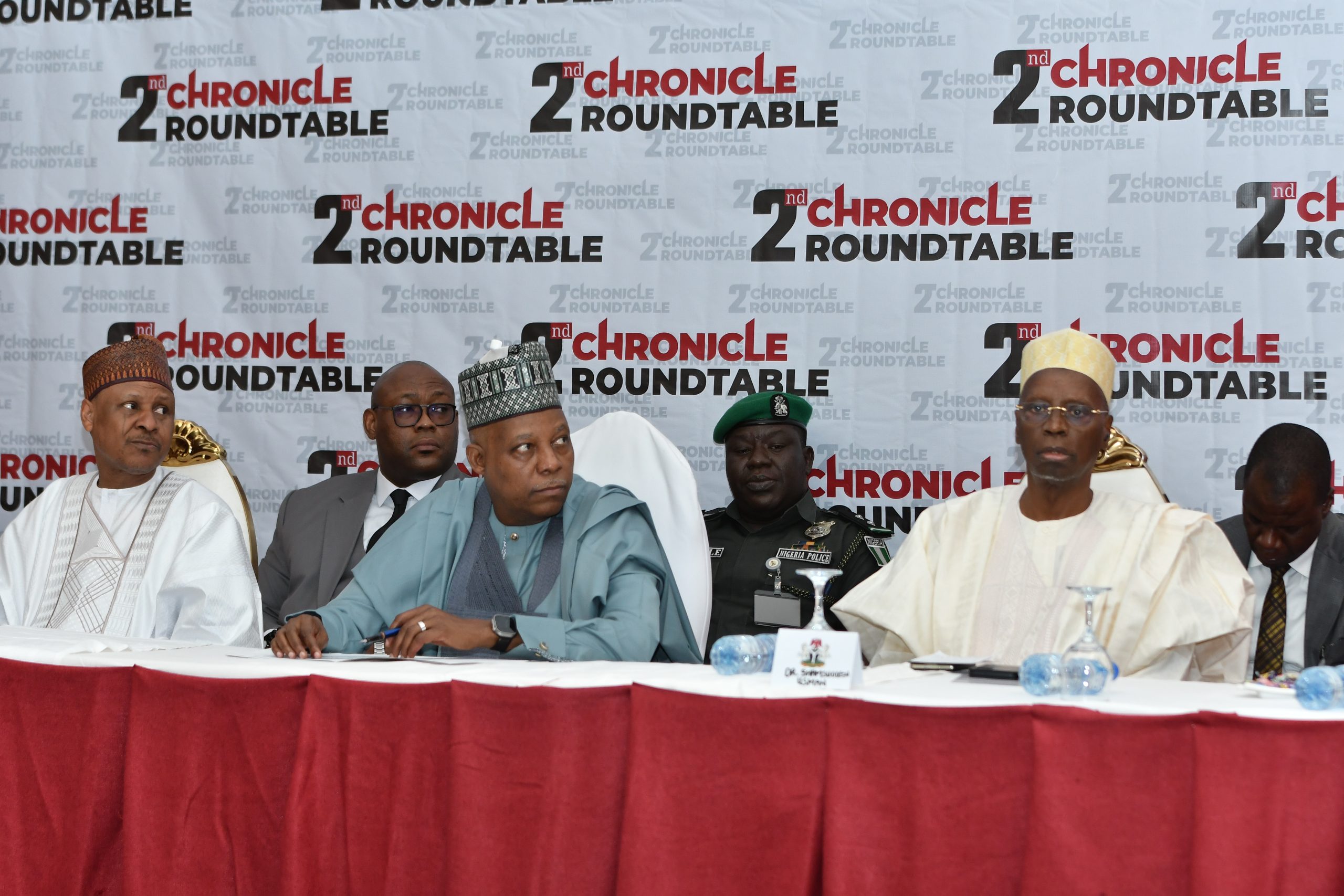News
Borno: Gov Zulum bans metal scavenging over insecurity
Borno State Governor, Babagana Umara Zulum, said he has banned metal scavenging activities across the entire 27 local government areas of the state following the activities of bandits.
He said he would work closely with security agencies to enforce the ban by imposing stringent penalties on violators.
News Men recalls that bandit attacks and other forms of criminal activities have forestalled economic activities and claimed several lives of innocent people in the state.
Following this, the governor, on Monday, said the ban aimed to forestall continued killings of scavengers by Boko Haram insurgents at the outskirts of some local government areas and theft of public and private property.
“Within the last five years, many people were killed as a result of metal scavenging. That has informed the government of Borno State to investigate such nefarious activities,” Zulum said.
According to him, scavengers in the state are known for destroying both public and private properties in some LGA where the activities of Boko Haram forced residents to flee, adding that the state government lost valuable properties worth billions of naira in the last five years resulting from the actions of scavengers.
He also extended the ban on metal scavenging to all forms of informal and unregulated metal recovery activities, including the dismantling, collection, and transportation of scrap metals.
News
ASUU faction dissociates self from UniAbuja strike


News
Nigeria’s economy to experience significant growth soon – Shettima


Vice President Kashim Shettima has expressed the optimism that the Nigerian economy would experience significant growth soon.
Shettima stated this on Thursday in Abuja at the 2nd Chronicle Roundtable, organised by 21st Century Media Services, publishers of 21st Century Chronicle.
The event was as part of group’s public service enlightenment series.
The Vice President implored Nigerians to be patient with the administration of President Bola Tinubu as he steers the ship of state through the economic turbulence and storm he met on ground on assumption of office.
” Soon, Nigeria’s economy will experience significant growth once we’ve overcome these sacrifices.
” Positive changes will soon be evident across all economic indicators – inflation, per capital income, Gross Domestic Product (GDP), poverty reduction, food security -, and all aspects close to the hearts of our people,” he said.
Shettima, who was the Guest Speaker at the roundtable explained some key policy decisions taken by the Tinubu administration as well as its economic and social agenda, including the removal of subsidy on petroleum products.
He described the removal of fuel subsidy as the ‘biggest elephant in the room’ before Tinubu took charge.
“We met on ground, especially the nation’s ailing economy which was already tottering towards an eclipse.
“We look forward to the positive impact on the economy that will be brought by some of our new initiatives in some sectors including, oil and gas, creative arts, steel and solid minerals, housing, blue economy, and digital.
” There is no doubt that there’s a time to plant and a time to reap.
“In between those times, we appeal for patience and seek collective sacrifice from all, especially from us.
“We wish there were a way to treat this ailment without surgery,” he said
The Vice President noted that the decision to remove fuel subsidy was quite tough considering its negative impacts on the lives of the citizens.
He said the removal, however, became an inevitable option when it was discovered that the immediate past administration of former President Muhammadu Buhari did not make provision for it in the 2023 budget.
Shettima said that Tinubu chose the option that would save the life of the nation, instead of one that would merely prolong its imminent and predicted economic death.
“We understood why our predecessor made the decision not to budget for fuel subsidy in their final fiscal year, because Nigeria’s debt service-to-revenue ratio had grown to 111.8 per cent.
” The anticipated debt crisis may sound like fancy economic jargon to the man on the street.
“However, you and I are in a better position to understand how such miscalculations have played out in other countries. It’s an economic death sentence,” he said.
Shettima added: “In plain terms, our debt servicing was such that if you earned, say, N100,000, the entirety of the money wasn’t only paid to your debtor; you were forced to borrow an additional N11,800 to pay the debtor.
“How do you intend to survive this, and how many more loans before you become a pariah?
“We are not even discussing the nation’s budget deficits, diversions of resources from critical sectors of the economy, and corruption masterminded in the subsidy regime”.
The Vice President noted that, whoever had succeeded the previous government, would have either chosen to steer the ship through the storm as Tinubu is doing or jumped ship and let the country implode.
He said those who contested the presidency with Tinubu were not morally justified to question the decision to remove fuel subsidy because it was part of the solutions they also tabled before Nigerians.
“This was because, whether in handling the subsidy matter or the forex crisis, they had also promised the solutions we had adopted.
“Those who attempted to eat their words were instantly proven wrong by data, history, and their antecedents—those emotionless reality checkers,” he said.
Shettima said, for long, Nigeria had endured economic sabotage, leading to the resolve by the CBN Governor, Yemi Cardoso, and the National Security Adviser, Nuhu Ribadu, to neutralise the overpowering influence of currency manipulators.
The manipulators, according to the Vice President, had conspired to frustrate government reforms.
” Today, I stand proud to say that their interventions have translated into desired results, and Naira’s pushback against all odds is an inspiring journey that doesn’t have to be learned in Buenos Aires, as some would want us to do,” he said
Earlier, the Chairman, Ministry of Finance Incorporated and former Finance Minister, Dr Shamsudeen Usman, praised the content of the Renewed Hope Agenda of the Tinubu administration.
He described it as one of the most detailed and carefully crafted policy document in the history of the country.
He stressed the need for the Renewed Hope Agenda document to be reviewed and integrated into the medium and long-term development framework of the country.
Usman noted that policy consistency with a long-term vision to transform critical sectors of the economy, was the way to go.
He commended the administration’s establishment of a central coordination delivery unit to track the performance of programmes, policies and key interventions of the Federal Government.
He insisted that the monitoring of key performance indicators in the policy document was critical to the success of the government.
Malam Mahmud Jega, the Chief Executive Officer of 21st Century Chronicle Media Services, said the media has the responsibility to critically analyse government policies and programmes.
Doing so, according to him, would translate to contributing in shaping the nation’s development trajectory.
News
Nigerian Customs Service inaugurates advance ruling system to improve trade


The Nigeria Customs Service (NCS) on Thursday inaugurated its Advance Ruling System to enhance trade facilitation, in Abuja.
It has also organised stakeholders` engagement to foster mutual understanding of its programmes and to facilitate the rollout of the system.
Speaking at the event, the Comptroller General (C-G) of NCS, Adewale Adeniyi, said that the move was aimed at creating a more transparent and predictable business environment for its stakeholders.
Adeniyi described advanced ruling as a critical mechanism that allowed traders obtain binding decisions from customs administrations on the classification, origin, and valuation of goods before importation.
“This tool is essential for promoting trade facilitation, reducing compliance costs, and fostering a conducive business environment, “he said.
The News Agency of Nigeria (NAN) reports the joint sponsorship by the Global Alliance for Trade Facilitation and the European Union-World Customs Organisations (EU-WCO) Rules of Origin (RoO) Africa Programme for NCS personnel training in January, on advance ruling skills for rules of origin.
NAN also reports that both the World Customs Organisation and the World Trade Organisation have emphasised the significance of advance ruling in facilitating international trade and promoting customs compliance by aiding traders in making informed business decisions.
The C-G described the launch of the system as timely, aligning with the policy directive of President Bola Tinubu’s administration to facilitate ease of trade for legitimate traders.
“This is reflected in the Policy Advisory Document of the government, which highlights recent achievements, such as the approval to decongest the ports and make them free and accessible for importers and operators.
“Additionally, the recent inauguration of the Single Window steering committee by the President underscores high-level commitment to enhancing trade facilitation in Nigeria, “ he said.
He added that the implementation was also timely, particularly considering the significant number of disputes the service had to handle between 2020 and 2023.
According to him, out of the 34 disputes, 31 have been resolved, while three cases are still pending.
“Additionally, in spite of the absence of a structured mechanism, a total of 296 requests for Tariff opinions were received, with 266 processed and 30 pending.
“It is crucial to note that the absence of this mechanism has implications beyond Trade Facilitation, as it also impacts our revenue, “he said.
He said that the service would organise workshops and sensitisation sessions at its Area Commands to ensure the successful implementation and to ensure stakeholders` understanding for effective use.
The C-G said he had given approval for the development of a handbook to provide guidance to traders and customs officers, and also to ensure consistency and transparency in the service`s rulings.
He thanked the German International Cooperation Agency (GIZ) for supporting its commitment to facilitate ease of trade.
Earlier in his remarks, the Country Director of GIZ, Dr Markus Wagner, said that the advance ruling system was part of the Nigeria Energy Support Programme, funded by the German Federal Ministry for Economic Cooperation and Development.
Represented by Duke Benjamin, the Cluster Coordinator for GIZ Nigeria Programmes on Just Transition and Inclusion, he said the knowledge provided by the advance ruling would facilitate improvement in investments in Nigeria.
He added this was due to the clarity it brought on trade processes.
-
capital market2 years ago
Rt.briscoe, FBNH, Others halts negative performance of stock market
-
Finance3 months ago
Court orders Sen. Victor Umeh to repay N136m bank debt to AMCON
-



 Abuja Update2 months ago
Abuja Update2 months agoUNDP, FG partnership needed to achieve inclusion, equity- Minister
-
Abuja Update1 month ago
Banks drive stock market performance with N147bn gain
-



 Business1 week ago
Business1 week agoTingo Group unveils Tingo Electric, Tingo Cola drink at Lagos launch
-



 Health2 weeks ago
Health2 weeks agoCapacity training will reduce migration of health workers- NPHCDA
-
News4 months ago
Oil thieves sponsoring malicious media campaign against Navy – Spokesman
-



 Infotech1 month ago
Infotech1 month agoWorld Backup Day: NITDA urges Nigerians to ensure backup of data






